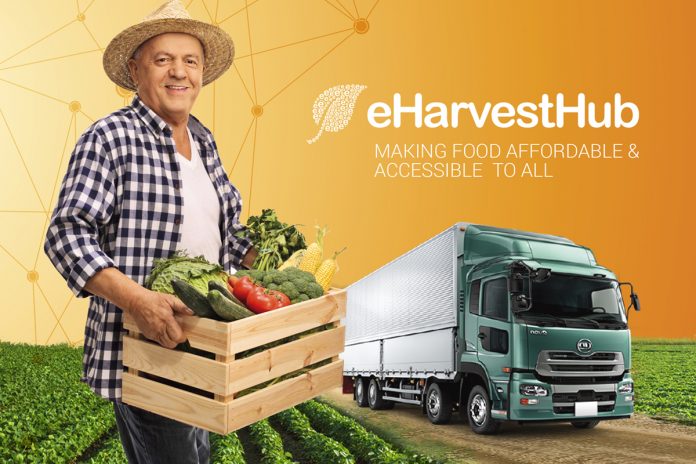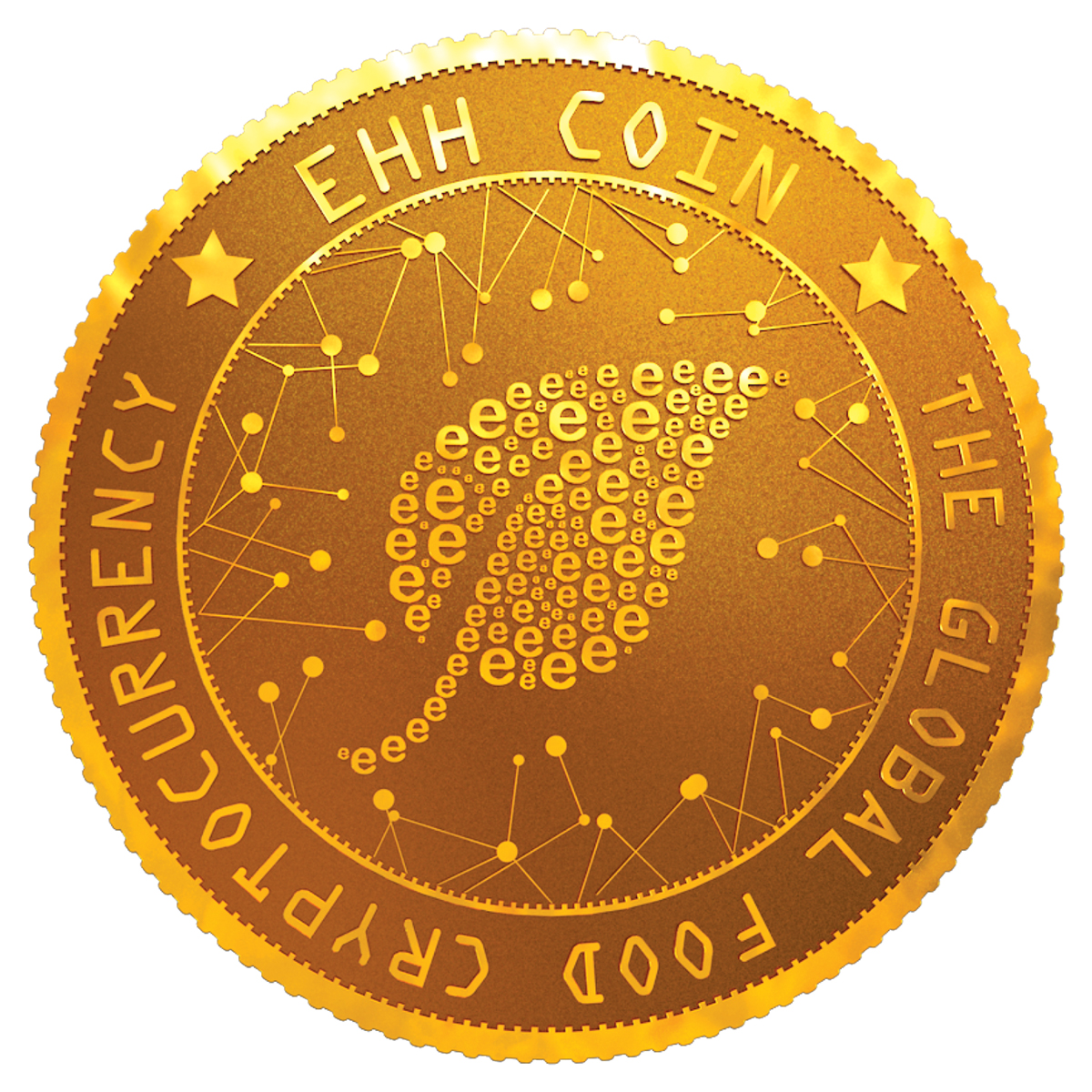Our global economy is leaving our small farmers behind, yet they produce more than 60% of the fresh food we consume. eHarvestHub gives farmers direct access to the global market making our food more affordable and accessible, as this analysis from Alvaro Ramirez at eHarvestHub reveals
We produce enough fresh food to feed the world, however, affordability and accessibility are a big problem. Fresh food is a global business, yet consumers pay high prices, while the farmers who feed us are financially being left behind. This can all be attributed to the complexity of our food chain. To make fresh food more affordable and accessible, we must radically change the food supply chain; from seed to the grocery store to the lending institutions who finance our small farmers each year.
To make this happen, “true decentralisation is needed and blockchain technology is perfect for it”, notes Alvaro Ramirez, CEO and Founder of eHarvestHub. The company’s approach to solving the affordability and accessibility of fresh food not only uses blockchain technology to achieve it, eHarvestHub’s business model removes the layers of middlemen leaving only key market participants: the grower, the trucker, the grocer and the consumer. The company brings the small farmer to the global stage, giving grocers direct access to their inventories that today can only be accessed through the existing layers. Let’s take a closer look.
According to World Bank agricultural data, more than 60% of our global fresh food production comes from the more than 480 million small farmers. The eHarvestHub marketplace gives these small farmers a global stage. Regardless of the geographical location, eHarvestHub has found that small farmers face the same core problems: 1) not enough volume; 2) dependent on middlemen to market their product and arrange transportation and; 3) high-interest loans.
Developed countries with high population and economic power drive food imports today. Twenty-five countries import more than $1 trillion of the world’s food production and 66 countries also rely on imported food. For example, last year the United States imported more than $136 billion in fresh food, most of which came from the over 19 million farmers in Latin America. One of the main reasons why the United States imports fresh food from Latin America is because of food safety. Many farmers in Latin America follow Good Agricultural Practices (GAP) and similar food safety practices as American growers.
Small farmers don’t produce enough volume to meet supermarkets’ demand on their own, forcing them to sell to the multiple middlemen who clutter our food supply chain giving grocers little visibility to small farmers’ available inventories. This leaves farmers making pennies on the dollar for their product, while consumers pay high prices and the middlemen profit the most in this ecosystem. The product moves through the value chain – sometimes exchanging hands seven to 10 times – increasing the risk of contamination, food fraud, lowering shelf life and increasing costs each time a product exchanges hand.
Technology alone is not the answer. To solve the accessibility and affordability problem, eHarvestHub goes to the root of the problem: increase the farmer’s margin using blockchain technology with its business model to give the small farmer a stage on the global market. eHarvestHub’s CEO says that technology providers fall short because while they may have sound technology, they end up taking percentages from the farmers’ profits, only becoming the new middleman. For technology to be effective, the business model must enable growers to have access to the technology without fear of losing their hard-earned money. With eHarvestHub’s flat transaction fees and no middlemen, these two factors increase margins for the farmer and enable growers to gain the maximum use of the company’s technology. This not only creates true transparency for grocers and consumers, but it gives farmers access to consumer-driven lending.
eHarvestHub’s full enterprise technology solution provides its customers with traceability, a real-time inventory, order management, direct access to truckers a marketplace where grower, grocer and trucker can interact directly, and it is intuitive and built with not so tech-savvy customers in mind. eHarvestHub’s use of blockchain, smart contracts and cryptocurrencies not only to help farmers give full transparency on their products, but to be paid soon after the product has been delivered. Farmers currently must wait up to 90 days after the product has been delivered to be paid. The marketplace smart contract places the funds for a transaction in an escrow account, which gives the buyer a peace of mind as funds only get released if the seller and carrier fulfil all their contracted obligations. Once all parties have fulfilled their obligations, the smart contract releases the funds to the seller and carrier.
Ed Treacy, Sr. Vice President of the Product Marketing Association, describes fresh produce logistics as a web because of the multiple times that fresh produce exchanges hands and locations. eHarvestHub simplifies that web by removing the middlemen. With the goal of making fresh food more affordable and accessible, lowering cost includes “not only removing the need for the supply chain middlemen but also the agricultural lender”, explains Alvaro Ramirez. At the start of their planting season each year, farmers borrow from banks often paying up to 17% in interest.
Other financial institutions, unregulated in most countries, can charge up to 60% in interest. Since blockchain can truly connect farmer and consumer – regardless of their geolocation – consumers can see where the food they purchase comes from and where their money is going then they are most likely to support grocers who pay farmers higher. This transparency that eHarvestHub provides, coupled with its cryptocurrency, allows consumers to crowdfund loans for farmers at much lower interest rates than farmers currently pay. This truly gives the power back to consumers and putting the value where it belongs, with our farmers.
eHarvestHub’s approach to solving fresh food affordability and accessibility through blockchain technology and its social-economic business model truly disrupt and rewrite how our food reaches consumers. Helping farmers make more money will allow farmers to become more sustainable, as they will possess the funds to do so. Food waste can dramatically be decreased as farmers could plant fresh food based on market needs. The company’s approach to consumer lending for farmers has the potential to uplift many farmers from poverty while helping consumers make an extra income.
For more information on how to get involved with eHarvestHub, you can contact Alvaro Ramirez at Alvaro@eHarvestHub.com or visit their website at www.eHarvestHub.com
Please note: this is a commercial profile
Alvaro Ramirez
Chief Executive Officer
eHarvestHub
Tel: +1 925 303 6038












